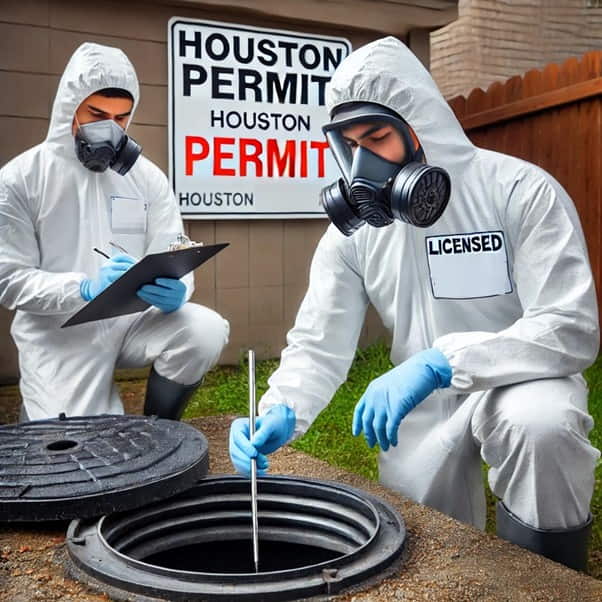How to Upgrade an Old Septic System to Meet Modern Standards
Are you worried that your aging Houston septic system is about to cost you thousands in unexpected repairs? You’re not alone. Septic failures can lead to messy backups, sky-high repair bills, and even fines for non-compliance. The good news? Upgrading doesn’t have to break the bank.
This guide walks you through the smartest ways to upgrade your septic system—whether it’s switching to a more efficient setup, expanding your drain field, or just making sure your tank stays in top shape. Plus, you’ll learn about cost-saving strategies, modern septic technology, and the must-know Houston regulations that could impact your upgrade.
Signs Your Septic System Needs an Upgrade
If your system is giving off warning signs, it’s better to act now than wait for a disaster. Here’s what to watch for:
- Slow Drains & Backups – Toilets, sinks, and tubs taking forever to drain? That’s a red flag.
- Foul Odors – A properly working system shouldn’t stink up your yard.
- Standing Water or Wet Spots – Soggy ground near the drain field could mean the system isn’t processing waste properly.
- Frequent Pumping Needs – If you’re getting the tank pumped more often than every 3-5 years, your system might not be big enough for your household.
- Old Age – If your system is over 20-30 years old, it’s probably outdated and inefficient.
Letting these problems linger could lead to contaminated groundwater, major repair costs, or even property devaluation.
Houston’s Septic System Rules: What You Need to Know
Upgrading a septic system in Houston means following local and state regulations. Here’s what to keep in mind:
- Permits Are Required – Any septic work—whether it’s a repair or a full replacement—needs approval from Harris County Public Health.
- Soil Testing is Mandatory – Before installing a new system, a soil test determines what type of septic setup will work best on your property.
- Not All Systems Are Allowed – Due to Houston’s high water table, certain older septic systems are no longer approved for use.
- Regular Inspections Matter – Failure to maintain and inspect your system could lead to fines or legal issues.
Getting a licensed professional involved early ensures everything is done by the book, avoiding costly missteps.
The Best Septic System Upgrades for Houston Homes
Not all septic upgrades are created equal. The right one depends on your property size, soil type, and budget. Here are the most effective options:
1. Aerobic Treatment Units (ATUs)
ATUs use oxygen to break down waste more efficiently than traditional systems. They produce cleaner effluent, making them ideal for areas with high groundwater levels—like many parts of Houston.
💲 Cost: Prices vary based on system size, installation complexity, and additional features. Homeowners should request quotes from licensed local providers to get an accurate estimate.
2. Smart Septic Monitors
These systems track waste levels, detect leaks, and send alerts when the tank needs maintenance—helping prevent costly emergency repairs.
💲 Cost: Pricing depends on brand, features, and installation requirements. Homeowners should check with septic service providers for current pricing.
3. Eco-Friendly Septic Systems
Options like constructed wetlands or low-water-use septic tanks reduce environmental impact and cut down on water usage.
💲 Cost: Typically higher upfront than standard systems but may lead to long-term savings on maintenance and water bills.
4. Drain Field Expansions
If your drain field is undersized or struggling to absorb wastewater, expanding it can improve system performance.
💲 Cost: Costs fluctuate based on soil type, system size, and site conditions.
Breaking Down the Costs: What You’re Really Paying For
A big part of upgrading is understanding where your money goes. Here’s a general cost breakdown:
💰 Aerobic Treatment Unit (ATU) Installation
- Unit itself: Cost varies
- Labor & excavation: Cost varies based on site conditions
- Permits & inspections: Required for all installations
- Advanced monitoring (optional): Additional cost may apply
💰 Drain Field Expansion
- Additional piping & materials: Cost depends on system size
- Excavation & labor: Varies by soil conditions and complexity
- Soil testing & redesign: Required before modifications
💰 Septic Tank Cleaning & Routine Maintenance
- Regular pumping: $200 – $500 (every 3-5 years)
- Inspection & minor repairs: $100 – $300 per visit
If you’re looking for septic tank cleaning near me, choosing a reputable provider ensures your system stays in top condition. Regular maintenance helps prevent costly repairs down the road.
Homeowners should always request a detailed quote from a licensed provider to understand the full costs of a septic upgrade.
How to Save on Septic Upgrades
Upgrading a septic system doesn’t have to drain your wallet. Here are practical ways to cut costs:
✔ Check for Available Assistance – Texas may offer financial assistance programs for septic upgrades, but availability and requirements change frequently. Check with the Texas Commission on Environmental Quality (TCEQ) or local county offices for the most up-to-date funding options.
✔ Regular Maintenance Saves Money – Keep your system running longer by scheduling professional inspections every 1-2 years and pumping every 3-5 years. Finding septic tank cleaning nearby can help maintain efficiency and prevent breakdowns.
✔ Upgrade in Phases – If a full system replacement isn’t feasible, start with smaller fixes like expanding the drain field or installing a smart monitor before investing in a full ATU.
Finding the Right Septic Professional
Not all septic service providers are the same. A qualified expert ensures compliance with Houston’s rules and helps avoid expensive mistakes.
💡 Questions to Ask Before Hiring:
✔ Are you licensed for septic installations in Houston?
✔ Do you have experience with ATUs and smart septic monitors?
✔ Can you provide references from past customers?
✔ Do you handle permits and compliance paperwork?
Searching for septic tank cleaning near me or a professional installer ensures you get the right expertise for your upgrade. A provider who understands Houston’s soil conditions and local regulations can make the process much smoother.
Common Mistakes to Avoid
Homeowners often run into problems when upgrading their septic systems. Here’s what to watch out for:
🚫 Skipping the Soil Test – Installing a system without checking soil conditions can lead to major drainage issues.
🚫 Choosing the Wrong Size – A septic system that’s too small will require frequent pumping, while an oversized system may not function efficiently.
🚫 Ignoring Maintenance – Even the best septic systems need regular cleaning and inspections to work properly.
Take Action Before It’s Too Late
Upgrading your old septic system isn’t just about avoiding expensive repairs—it’s about protecting your home, staying compliant with Houston’s rules, and making wastewater management more efficient.
If your system is showing signs of trouble, don’t wait until it’s too late. Book a professional septic inspection today to explore your best upgrade options and ensure your home’s wastewater system is built to last.

